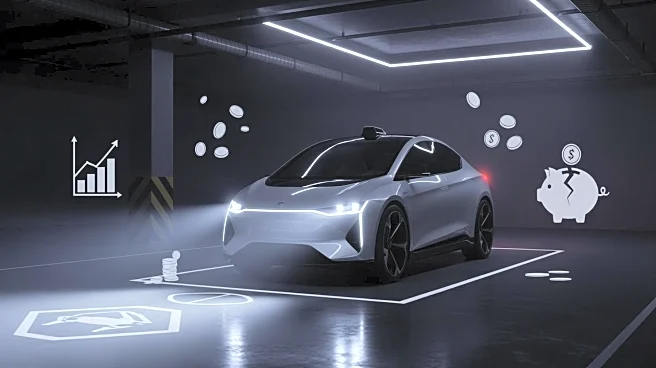What's Happening?
Waymo, Google's autonomous vehicle company, has postponed the launch of its driverless rideshare service in Washington, D.C. This delay is attributed to federal budget cuts that eliminated funding for
a crucial safety study by the District Department of Transportation (DDOT). The study, which was supposed to be completed in the fall, was necessary for the D.C. Council to move forward with legislation to legalize the self-driving service. Councilmember Charles Allen, who chairs the Council Committee on Transportation and Environment, emphasized the importance of ensuring safety before allowing autonomous vehicles on D.C. streets. Although the District has entered a new fiscal year and regained funding, there is no timeline for when the study will be completed or when legislative hearings will occur. Waymo, which has been testing vehicles and mapping D.C.'s streets, expressed frustration over the lack of progress.
Why It's Important?
The delay in launching Waymo's service in D.C. highlights the challenges of integrating autonomous vehicles into urban environments, particularly in the face of budgetary constraints. This postponement affects Waymo's expansion plans and underscores the importance of regulatory frameworks in adopting new technologies. The situation also reflects broader issues of innovation and leadership in transportation technology within the District. While Waymo has successfully launched its service in other major cities, the delay in D.C. could impact the company's competitive edge and influence public perception of autonomous vehicles. Additionally, the delay may affect local economic opportunities and technological advancements that could arise from the adoption of self-driving technology.
What's Next?
With the funding restored, DDOT can restart the safety study, but the timeline for completion remains uncertain. The D.C. Council will need to decide on the next steps for legislation once the study is completed. Meanwhile, Waymo continues to expand its services in other cities, potentially increasing pressure on D.C. to catch up with technological advancements. Stakeholders, including local government officials and safety advocates, will likely continue to debate the implications of autonomous vehicles on public safety and urban infrastructure.









